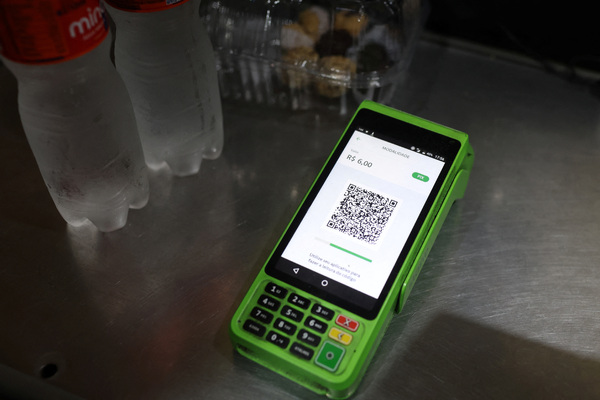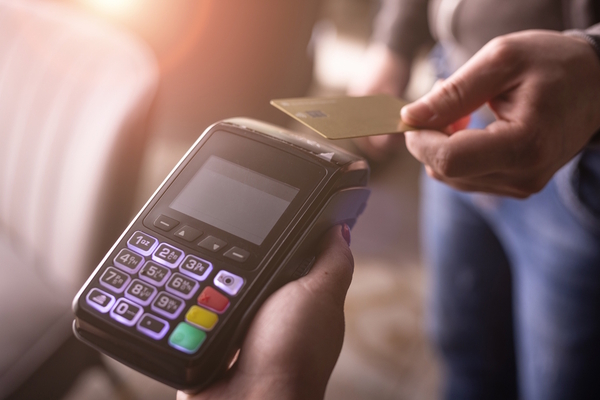Private Label: leveraging growth in post pandemic times
Sponsored by Trace OneLisa Bahmann-Rocher, New Business Development and Pre Sales, Trace One
While brands have been losing share to private label over the past decade, the pandemic has given it an unprecedented upsurge in growth
Retailers and suppliers were hit with unexpected supply chain shortages due to the pandemic. Shoppers were stockpiling household and shelf-stable goods, causing major unforeseen out-of-stock situations.
While we cannot forecast private label sales will continue to increase, it is imperative retailers keep the momentum going by leveraging shoppers’ short-term switching behaviour into longer-term shopper loyalty.
Now is the time to learn what’s working, what needs to be improved and where the gaps can be closed. We recommend retailers take a hard look both internally and externally at their current private label strategy.
Retailers can conduct an internal audit or diagnostic to assess their private label strategy and programme across the following areas: marketing, merchandising, quality, pricing, innovation and assortment.
Marketing
Regardless of an umbrella, category-specific or quality-tier branding strategy, does your customer understand the positioning or value proposition? Have you developed a highly recognisable visual and corporate identity and do you follow a consistent messaging strategy? Are your guidelines clearly communicated throughout your organisation? An appealing visual identity and strategic brand architecture contribute to the success of your private brand programme.
Has your private label brand communication been clear and based on consumers’ needs? If so, has the brand communication been consistent in its messaging? Have private label guidelines been implemented so everyone across your organisation is aware of them, from corporate to store level?
Private label products packed in recyclable packaging or edible packaging should also be considered. Business applications provider CGS conducted a survey in November 2018 that found 68 per cent of US internet users thought product sustainability was an important factor in making a purchase. What sustainable packaging initiatives have you implemented or are considering implementing for your private label packaging?
Merchandising
Where private label products are placed on a shelf plays a critical role in sales. The ideal product placement for private brands benchmarked to the national brand is eye level next to the market leader, allowing for shoppers to easily compare both choices. However, it is not always possible to position at eye level, especially if there are several variants to compare to the brand leader. If this is the case, the products could be separated vertically and placed beside the relevant market leader variant.
If you’re unsure about the best product placement, image recognition technology combined with POS data has proven to indicate the optimal shelf location and number of facings. Secondary placement, gondola ends and cross merchandising will also offer incremental opportunities for private label awareness and sales revenue.
Quality
According to an IRI Private Label Study, over 70 per cent of US consumers believe private label products are just as good quality as national brands. The importance of delivering high-quality private label products consistently cannot be understated. Private label products are under more scrutiny than national brands since national brands traditionally are more trusted.
Do you know how the quality of the best private label supplier compares to the leading national brands in that category? Does your QA organisation regularly test your products and competitor products?
Pricing
When retailers are developing a private label pricing strategy, the pricing of the national brand reference or benchmark needs to be considered. When a private label product has no comparable branded reference in the premium or value quality tiers, retailers can utilise several factors to determine pricing.
Once pricing is determined, pricing gaps must be regularly monitored and national brand promotions taken into consideration, which will also cause pricing gaps to narrow. Establishing price gap guidelines to allow for promotions and competitor pricing is recommended. Studies have shown an increase in private label price gaps causes an increase in private label sales and vice versa for price gap declines.
Innovation
Private label is at the forefront of innovation since retailers have the freedom to work with suppliers to develop new categories and concepts and launch faster than national brands. Innovative private label offers the potential to differentiate and redefine consumer brand expectations, ensuring increased customer loyalty and generating higher profitability.
As the share of private label penetration continues to rise and consumers are continuing to trust private label quality and performance, retailers can launch a steady stream of innovative products that go beyond the traditional brands’ offering.
Assortment
The right private label product assortment is key in creating a customer experience that builds loyalty. Management of the private label assortment requires in-depth data analytics, consumer behaviour – including purchase preferences and patterns – need states, usage occasions and lifecycle planning. By conducting regular analyses, retailers can identify opportunities to refine the assortment.
Range optimisation allows the retailer to align the range, ensuring the right products with the right attributes are available in the right channels.
Speed and agility are required to implement new initiatives, reduce time to market, stay ahead of the competition and ultimately enhance shopper loyalty.
Learn how Trace One can help you drive your private label business forward.

Business Reporter Team
Most Viewed
Winston House, 3rd Floor, Units 306-309, 2-4 Dollis Park, London, N3 1HF
23-29 Hendon Lane, London, N3 1RT
020 8349 4363
© 2025, Lyonsdown Limited. Business Reporter® is a registered trademark of Lyonsdown Ltd. VAT registration number: 830519543





